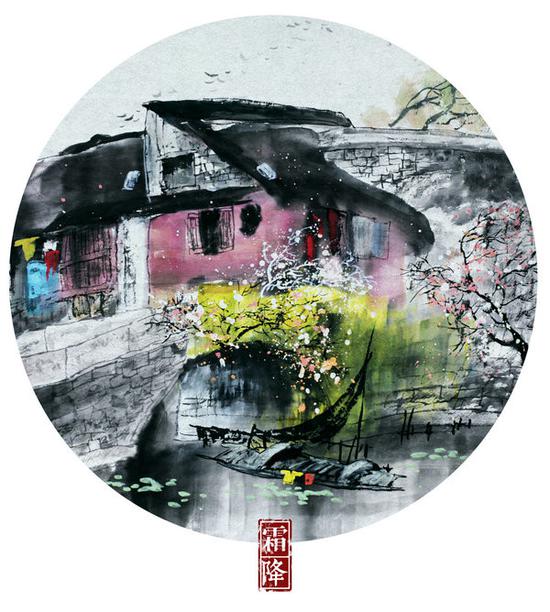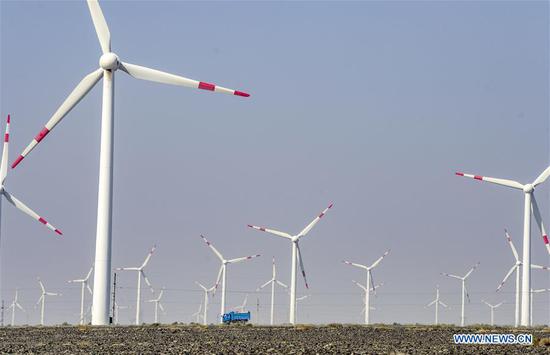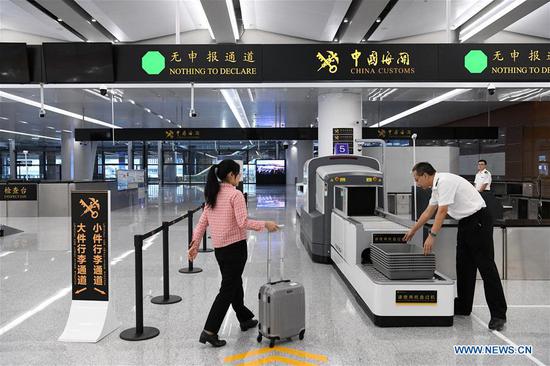It is up to the Communist Party of China (CPC) to perform well in China. China's world-renowned development achievements are inseparable from the core leadership and governance capability of the CPC.
The CPC's 19th National Congress emphasized that we must uphold and improve the socialist system with Chinese characteristics and continue to modernize China's system and capacity for governance.
What does the governance of China mean to the world? The CPC's ideas and practices have increasingly attracted attention and triggered plenty of thought in the international community.
PARTY GOVERNANCE: REFERENCE FOR THE WORLD
Experts agree that mainstream political parties in some western countries have fallen into decay as populism and other extreme trends rise, political chaos reigns, and social divisions widen.
The CPC has succeeded in drawing on public opinion, conducting its own anti-corruption campaign and enhancing its ability to govern, garnering plenty of interest from political parties around the world.
"The key to success is the need to hear the people and translate what they need into a plan for achieving the reasonable needs of the people. Promising too much and under-delivering or accepting any demand are not a serious course," said Stephen Perry, chairman of Britain's 48 Group Club, an independent British business network committed to promoting positive links with China.
"China has been successful because it has developed sensible tested plans and then adjusted them as realities have impacted," Perry said.
Ignacio Martinez Cortes, an expert on China at National Autonomous University of Mexico, said with the rise of populism some countries simply take development plans as campaign slogans, only to find themselves unable to deliver.
In terms of party governance, the CPC has continuously strengthened its anti-corruption and discipline methods in order to build an efficient and clean party, said Cortes, adding that China offers reference in theory and practice for the building of political parties in many countries, as well as real cases and inspiration for policy making and problem solving in developing countries and even some developed countries.
Emad al-Azraq, an expert on China in Egypt, said that many countries are confronted with a crisis in their political systems, mainly because the public no longer trusts the ruling parties.
Political parties in both developing and developed countries can learn much from the CPC's experience, said al-Azraq, adding that the strong cohesion and organizational capacity of the CPC can not only meet the public's various needs but also enable the party's policies to be implemented.
The CPC has a good mechanism for self-innovation and self-examination, and to propose major initiatives and new ideas, which allows the party to stay youthful while accumulating rich experience, said al-Azraq.
The CPC is the guardian of the people's interests, something political parties and governance systems in some countries have failed to achieve, said al-Azraq.
STATE GOVERNANCE: CHINESE PATH AS NEW OPTION
Some countries are faced with acute endogenous problems, posing challenges to governance. Experts say China is worth learning from in terms of state governance.
For the vast number of developing countries, the CPC's ideas and practices for state governance provide them with an alternate option from western models, and inject a positive driving force in a world under great change.
"The Beijing way has much to help African countries who are struggling to create employment just as China did in the 1980s and to get extra income for the nation just as China did in the 1990s," said Stephen Perry.
"African countries and countries the world over can see a way to develop that is realistic and proven," he added.
David Gosset, a French expert on international relations and founder of the Europe-China Forum, said that lots of major reforms China has made since its reform and opening-up have enabled the country to develop rapidly and grow into the world's second largest economy, an illustration of the efficiency and success of its governance system.
From the perspective of state governance, western democratic electoral systems have revealed huge problems -- that is, with no long-term plans for state governance, politicians and parties are merely focused on the short term and winning the next election, said Gosset.
Ruling parties are usually in power for only four or five years, during which they also have to run for re-election; they become worn out and doused in unfulfilled commitments, said Gosset.
The CPC, however, is driven by long-term plans on state governance and is able to push forward reforms, a fact recognized by Western politicians, said Gosset.
Denise Kodhe, executive director of the Institute for Democracy and Leadership in Africa, a Kenyan think tank, said the main reason why socialism with Chinese characteristics guides China's progress is because the country has embarked upon an independent path for development.
China's development is based on its own national conditions rather than blindly following foreign systems, a choice worthy of consideration by developing countries including African ones, Kodhe said.
GLOBAL GOVERNANCE: CHINESE WISDOM ENLIGHTENS WORLD
Under the guidance of Xi Jinping Thought on Socialism with Chinese Characteristics for a New Era, China has put forward the admirable goal of building a community with a shared future for humanity. Furthermore, Xi Jinping Thought adheres to the national policy of opening-up, promotes the building of an open world economy, and espouses the need to narrow the development gap between the North and the South while safeguarding the legitimate rights and interests of developing countries, experts said.
All of this means that China will play a more active role in improving global governance and promoting the development of a more fair and rational international order, experts said.
Ignacio Cortes said Xi Jinping Thought clearly conveys Chinese ideas to the world, including on development, climate change and the maintenance of free trade.
China's role in global governance is reflected not only in its economic achievements, but also in its bid to maintain world peace and security, said Cortes.
Xi Jinping Thought provides a series of shared solutions on global governance, which reflect Chinese thought and philosophy, among them, the building of a community with a shared future for humanity is most typical, said Cortes.
China's bid to building a community with a shared future means that China will play an important role in global governance and further participate in global affairs, Cortes said.
Kodhe said that in recent years, progress in global governance has not been satisfactory, and issues like terrorism, regional conflicts and refugee crises have caused serious threats to international security and stability.
Xi Jinping Thought provides Chinese wisdom on global governance, Kodhe said. One example is the Belt and Road Initiative. This grand drive to expand vital infrastructure and trade will enhance the interconnectivity of countries along its routes and promote common prosperity for all countries involved.


















































